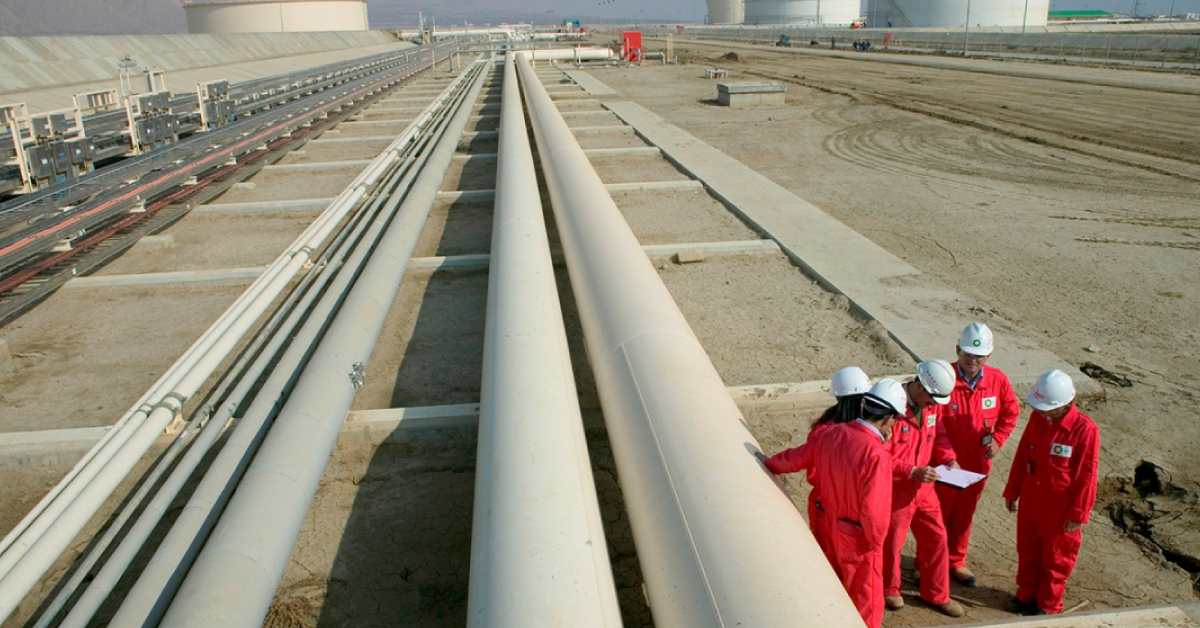2026
2026
2025-01-29

The Ministry of Energy of Azerbaijan has published the gas export figures for 2024. Last year, the export volume increased by 5.8%, reaching 25.2 billion cubic meters (bcm). Approximately half of this amount, 12.9 bcm, was exported to Europe. In 2023, the growth was around 9%.
Azerbaijani gas reaches Southern and Eastern Europe via the Southern Gas Corridor, passing through the territories of Turkey and Georgia. Italy is the largest consumer of Azerbaijani gas in Europe. In 2024, eight European countries purchased gas from Baku: Italy, Greece, Bulgaria, Romania, Hungary, Serbia, Croatia, and Slovenia.
The development of relations with Eastern European countries holds a significant place in Azerbaijan’s foreign policy. Although Baku’s efforts to deepen relations began even before the gas supplies, energy cooperation has now become the cornerstone of Azerbaijan’s economic and political relations with those countries.
Oil and gas revenues are important components in Azerbaijan's foreign policy. Since the beginning of the Russia-Ukraine war, the significance of Azerbaijan's energy resources for Europe has grown as an alternative to Russian supplies. In 2022, the EU and Azerbaijan signed a strategic cooperation document in Baku regarding gas supply.
Apart from relations with Turkey, Azerbaijan-Russia political relations have also deepened over the past two years. Numerous reports have been published about Azerbaijan transiting Russian gas to Europe. In recent years, Baku has been strengthening its political ties with the countries whom it supplies gas. In turn, these European countries are striving to diversify their energy imports, including gas purchase from Azarbaijan.
Judging by the visits of Ilham Aliyev and other Azerbaijani officials over the past 4-5 years, one can gain insight of Baku’s foreign policy priorities.Besides neighboring countries such as Turkey, Russia, and Georgia, Azerbaijan focuses on Turkic and Eastern European countries. Azerbaijan seeks to leverage the energy trade factor with these countries to strengthen political ties. One of the methods to achieve this is the signing of strategic partnership agreements.
Currently, Azerbaijan has strategic partnership documents with nine EU member states, including Italy, Hungary, Romania, and Bulgaria. In 2024, Azerbaijan, Georgia, Hungary, and Romania signed an agreement to create infrastructure for electricity supply to Eastern Europe via the Black Sea. Additionally, in 2024, another regional country, Serbia, began receiving Azerbaijani gas, with an annual volume of 400 million cubic meters. However, at the beginning of January 2025, according to official reports, gas supplies to Serbia were suspended due to an issue at Azerbaijan’s Shah Deniz gas field.
Italy is the largest buyer of Azerbaijani gas in Europe, and Baku serving as its second-largest supplier after Algeria. In 2024, Italy’s Deputy Foreign Minister criticized France after the French Foreign Minister claimed that Azerbaijan was undermining Armenia’s territorial integrity. The Italian official described France’s remarks as actions that hinder peace. In the same year, Hungary blocked a €10 million European Peace Facility support package for Armenia, demanding that funds also be allocated to Azerbaijan, even though Baku had not requested any assistance from the fund.
Italy and Hungary are among the European countries whose embassies in Baku congratulate Azerbaijan on victory day on November 8.
Azerbaijan purchases weaponry from Italy and Serbia. In 2023, Azerbaijan and Italy signed an agreement for the purchase of military transport aircraft. Meanwhile, in February 2024, Baku signed a contract worth approximately $300 million with Serbia for the acquisition of self-propelled howitzers and shells.
Baku is also attempting to involve these countries in “reconstruction” efforts in Nagorno-Karabakh. In an interview with an Italian media outlet in 2022, Aliyev stated that, in terms of the scope of work, Italian companies rank second after Turkish ones. Hungary is also engaged in this policy.
It is also worth noting that in November 2024, the leaders of European countries receiving gas from Azerbaijan visited Baku to participate in COP29, the UN Climate Conference. Hungary’s Prime Minister Viktor Orban also visited Shushi in 2024 and took part in the Turkic States Organization summit.
Thus, by capitalizing on the energy vulnerabilities of certain European countries, Baku seeks to advance its political agenda and narratives in Europe through the strategic use of its energy resources.